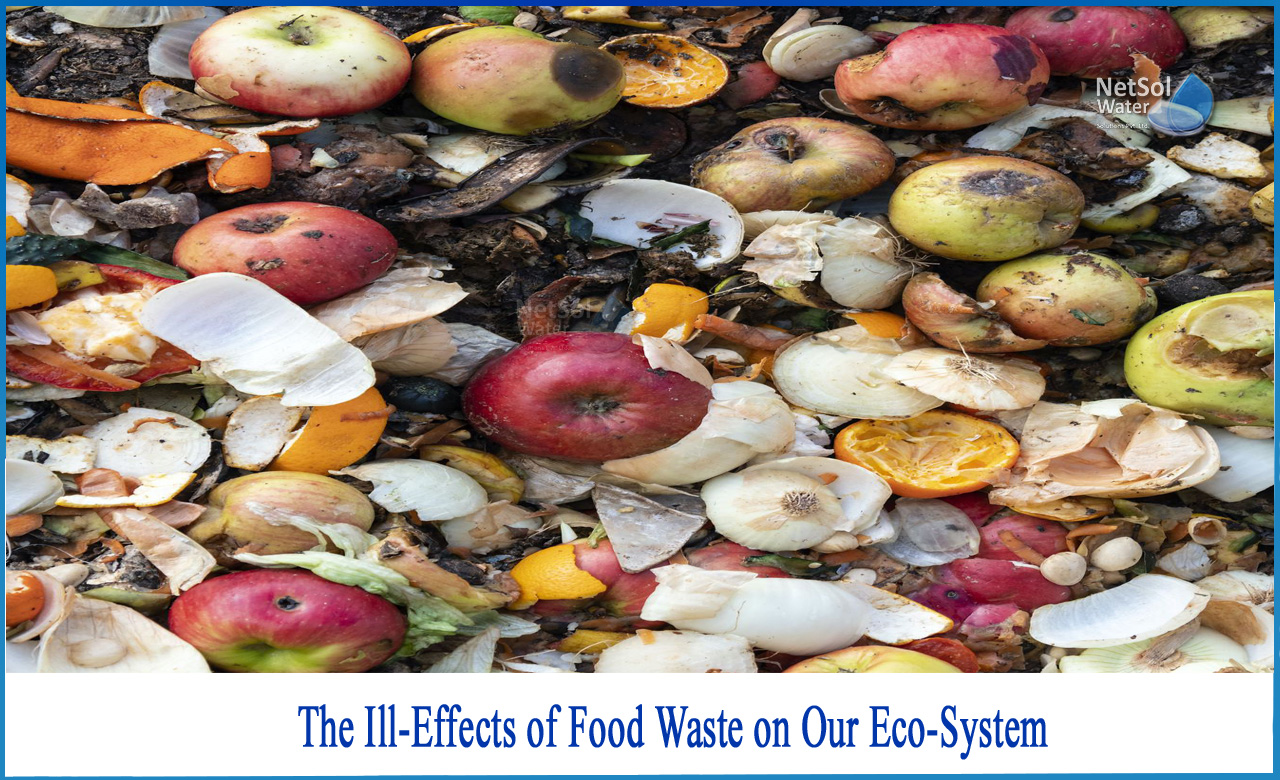How does food waste affect the ecosystem?
Food waste is a big contributor to greenhouse gas emissions and, as a result, climate change. Many of us are unaware of how much food we waste at some point in our lives. According to the Food and Agricultural Organization, we squander around one-third of all food produced.
To put it another way, if food waste were a country, it would be the third biggest in the world.
Food waste happens not just at the store or customer level. It happens at all phases of the procedure. Also, consider the amount of land, water, fertilizer, money, fuel, and energy spent on the farm to produce that wasted food.All of this is for naught since we do not handle food appropriately. Because of this, one-third of it gets thrown away.
What is the difference between food waste and food loss?
Food waste and food loss may appear to be synonymous, yet they are not. Food loss refers to early phases of production such as harvesting, storing, and transporting. Food waste, on the other hand, refers to food that is fit for human consumption but is rejected on a regular basis at grocery shops or by customers.
What factors contribute to food waste?
-While food loss occurs primarily during the production stage due to insufficient skills, natural disasters, a lack of proper infrastructure, and poor practices, food waste occurs when edible food is intentionally discarded by consumers after they fail to properly plan their meals and store food until it spoils or expires.
-Food waste can also occur as a result of market surplus. Retailers also reject a large amount of food because it does not meet their quality and aesthetic criteria.
When you throw away food, you throw away water!
Food waste equates to water waste!
Yes, when you waste food, you waste millions of gallons of water.
Agriculture consumes the majority of the world's freshwater.These freshwater supplies are rapidly depleting, as is the worldwide need for millions of hungry and thirsty people. We utilize a lot of water in every stage of food production, whether it's irrigation, spraying, pouring, or any other method. Water is also required for the feeding of livestock, fish, and fowl.
As a result, when we waste away food, we also throw away millions of gallons of water that could have been used to produce and nourish plants. Fruits and vegetables that we eat are high in water content because millions of tons of water are consumed to cultivate them; even meat and poultry are heavy consumers of water since they use a lot of it.Each crop requires a varied amount of water, and each animal need a different amount of water. A loaf of bread, for example, requires 100 buckets of water, but one chicken breast requires 54 buckets of water.
Finally, the water consumed for wasted food is estimated to be 45 trillion gallons. In other words, 70% of all fresh water is utilized for agriculture, which results in waste owing to food waste.
Conclusion: Food Waste Management Solution
1: To reduce food waste, reforms must be implemented at every level of the supply chain, from farmers and food processors to supermarkets and individual customers. Priority should be given to balancing production and demand as a first step.This effectively means using less natural resources to generate food that isn't required.
2: Second, additional efforts should be made to improve food gathering, storage, processing, and distribution operations. If there is an overabundance of food, actions should be taken to redistribute it or redirect it to individuals in need.
3: Customers should also aim to buy food in line with a meal plan to avoid wasting usable food. Food may be cheaper when purchased in bulk, but in fact, you are not saving money if all you do is throw it out at the end of the week.If the food is still unsuitable for human consumption, it can be utilized to feed cattle, conserving valuable resources that would otherwise be used to produce commercial feed. If the food cannot be utilized, we should at least strive to recycle it responsibly rather than throwing it out in landfills where it will rot.
Netsol Water is Greater Noida-based leading water & wastewater treatment plant manufacturer. We are industry's most demanding company based on client review and work quality. We are known as best commercial RO plant manufacturers, industrial RO plant manufacturer, sewage treatment plant manufacturer, Water Softener Plant Manufacturers and effluent treatment plant manufacturers. Apart from this 24x7 customer support is our USP. Call on +91-9650608473, or write us at enquiry@netsolwater.com for any support, inquiry or product-purchase related query.



